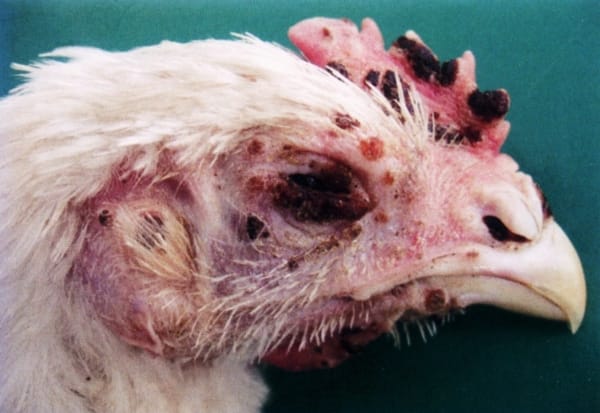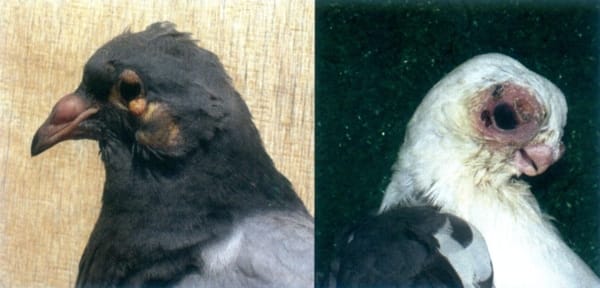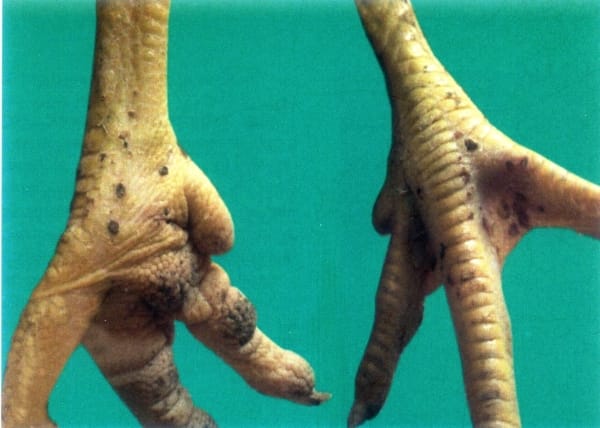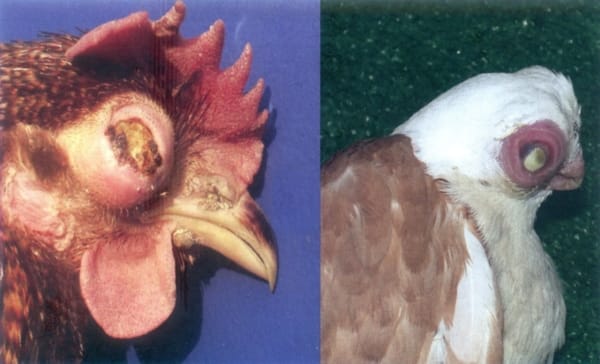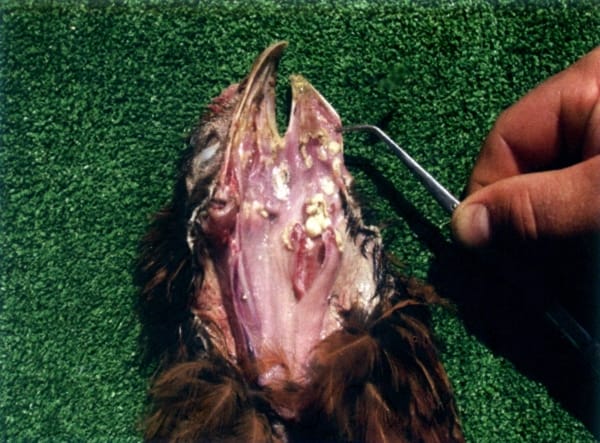FP is encountered in either cutaneous or diphtheritic form or in both. In most outbreaks, the cutaneous form is prevailing. The lesions vary according to the stage of development: papules (Image 1), vesicles, pustules or crusts (Image 2). The lesions are usually in the region of the head.
Image 1: Papules in head of chicken
Image 2: Vesicles, pustules or crusts
FP lesions on the skin of the legs (Image 3).
Image 3: FP lesions on the skin of the legs
FP is caused by an epitheliotropic DNA virus from the Avipox genus, the Poxviridae family. Some virus types (strains) exist: fowl pox virus, turkey pox virus, pigeon pox virus, canary pox virus, etc., different in pathogenic and immunogenic aspects. The viruses are very resistant to environmental factors and could persist for several months. Some mosquitoes and bood suckling arthropods could also distribute the virus. The mosquitoes remain infective for several weeks. The incubation period is from 4 to 10 days.
Frequently, the conjunctival mucosa, injured by the pox virus, is an entrance door for additional contamination (E. coli, Staphylococcus spp., etc.) and development of complications (Image 4). The infection is mechanically spread by dissemination of the virus through desquamation of crusts that contain it.
Image 4: Conjunctival mucosa, injured by the pox virus
Diphtheritic lesions look like whitish or yellowish plaques that are deposited and grown on the mucous coats of the buccal and nasal cavities, the sinuses, the larynx, the pharynx, the trachea or the oesophagus (Image 5). The disease is spread slowly and many weeks could pass between its emergence and severe outbreaks occurrence.
Image 5: Diphtheritic lesions
The diagnosis is made upon the typical cutaneous and diphtheritic lesions. The prevention is performed by vaccinations that could be made at any age, if necessary.
(Source: "Diseases of poultry - A colour atlas" - Ivan Dinev & CEVA Santé Animal, 2010)
.

 Corporate Website
Corporate Website
 Africa
Africa
 Argentina
Argentina
 Asia
Asia
 Australia
Australia
 Belgium
Belgium
 Brazil
Brazil
 Bulgaria
Bulgaria
 Canada (EN)
Canada (EN)
 Chile
Chile
 China
China
 Colombia
Colombia
 Denmark
Denmark
 Egypt
Egypt
 France
France
 Germany
Germany
 Greece
Greece
 Hungary
Hungary
 Indonesia
Indonesia
 Italia
Italia
 India
India
 Japan
Japan
 Korea
Korea
 Malaysia
Malaysia
 Mexico
Mexico
 Middle East
Middle East
 Netherlands
Netherlands
 Peru
Peru
 Philippines
Philippines
 Poland
Poland
 Portugal
Portugal
 Romania
Romania
 Russia
Russia
 South Africa
South Africa
 Spain
Spain
 Sweden
Sweden
 Thailand
Thailand
 Tunisia
Tunisia
 Turkey
Turkey
 Ukraine
Ukraine
 United Kingdom
United Kingdom
 USA
USA
 Vietnam
Vietnam

